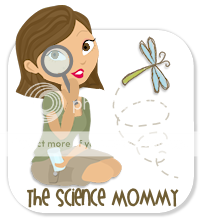Ages: All Kid Scientists can practice measurement…read on for age specific activities
Materials: Any measurement tools you have available: measuring cups, scales, measuring spoons, rulers, meter sticks, tape measures, spring scales, thermometers
Purpose: Measurement is a tricky thing for Little Kid Scientists. Frequently, Kid Scientists arrive in middle school without an understanding of units of measure or how to use measurement tools correctly. These are skills that can be easily taught and practiced by Kid Scientists exploring the world around them.
Procedure:
Little Kid Scientists:
- One of the best ways to build a measurement foundation is by helping mom and dad. Fill a small plastic box with rice or beans and encourage your Little Kid to scoop up 1 cup or ½ cup. Ask questions like, “Is 1 cup more than ½ cup?” “Is there more in 1 cup of rice or in 1 cup of beans?” Then use different containers to test the child’s prediction.
- Carry a ruler on a walk or while running errands. Ask your Kid Scientist, “How many inches tall is this step?” or “How many inches tall is this can?”
- Set a thermometer outside a window and check the temperature each day. To practice collecting data, Kid Scientists can record the temperature.
- In each situation, make sure you are using the name for the units of measure. Many Kid Scientists don’t understand the importance of labeling the numbers.
Big Kid Scientists:
- There is nothing like cooking to understand the value of measurement. Cooking also affords opportunities to measure liquids and dry ingredients as well as tricky things like peanut butter.
- Building things is also a great way to learn measurement. Engage your Big Kid Scientist in home improvement projects. Chances are the project will take longer but you'll have a great day teaching your kiddo new skills.
- On a rainy or snowy day, send Kid Scientists on a measurement scavenger hunt. Ask them to find something that is 6 inches tall, something that is 12 centimeters wide, something that weighs less than 1 pound. Get creative in what you ask for and tailor your requests to the measurement skills of your Kid Scientist.
- Big Kids would enjoy checking on the temperature each day. Encourage your Big Kid Scientist to come up with his own strategy for recording the data.
- You could also include a way to measure precipitation. Ask your Kid Scientist to come up with a device that will measure precipitation and include those data points as well. What patterns do they notice?
Many of the Science Mommy's explorations and investigations also include measurement as a skill. This is so important for Kid Scientists to practice!


























0 Science Moms have commented...:
Post a Comment